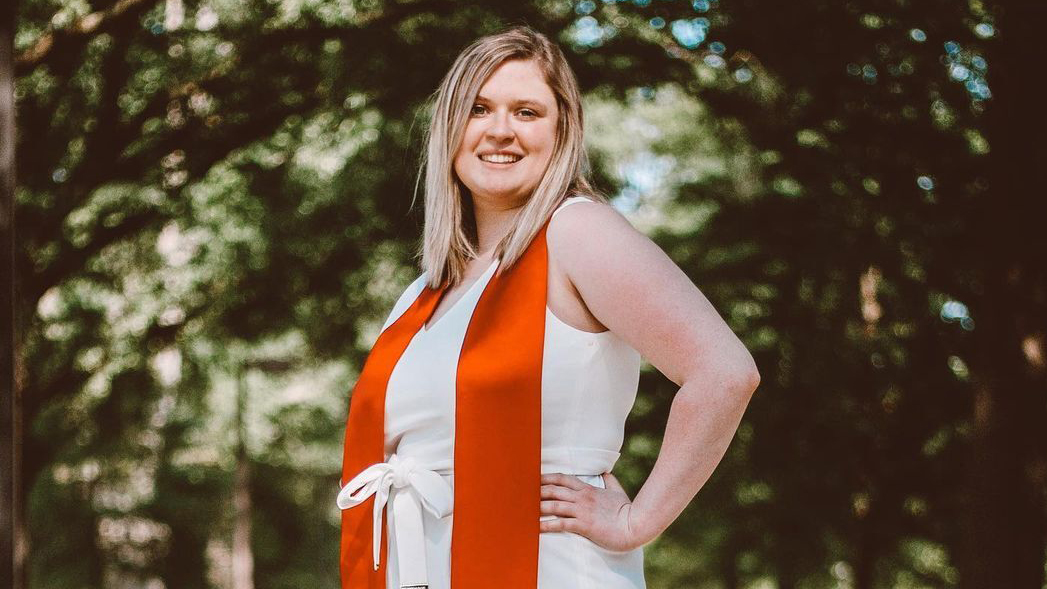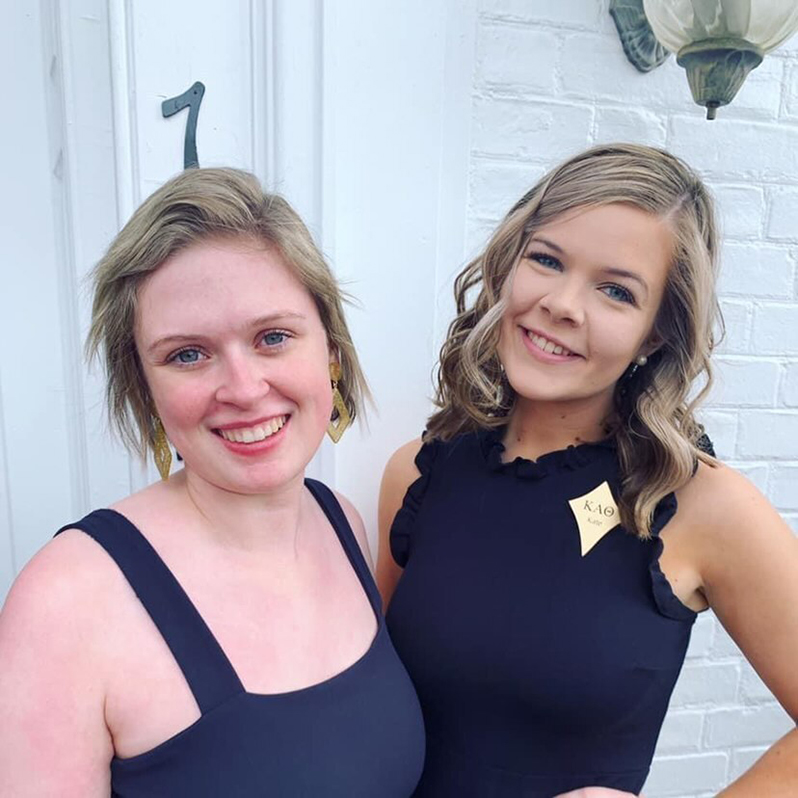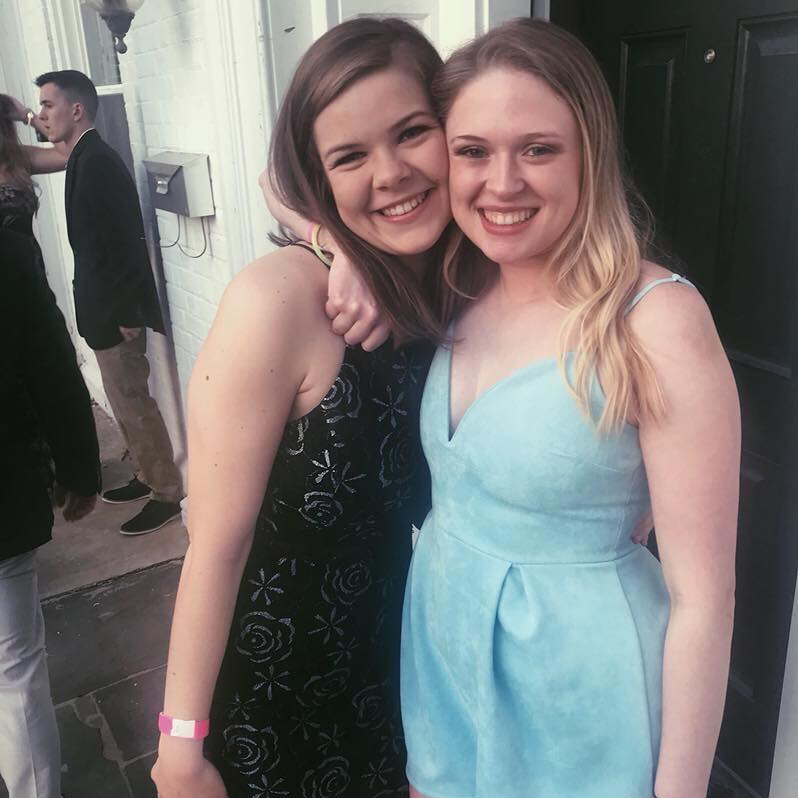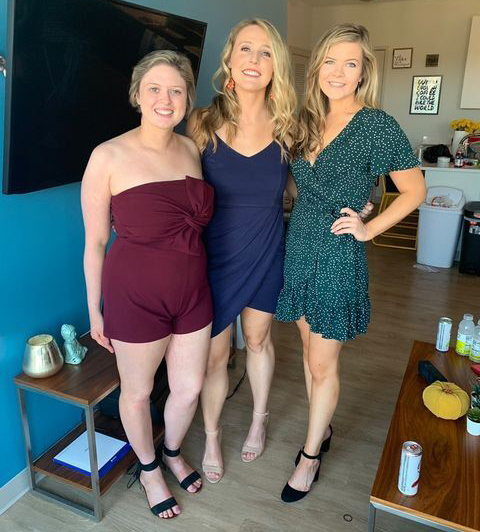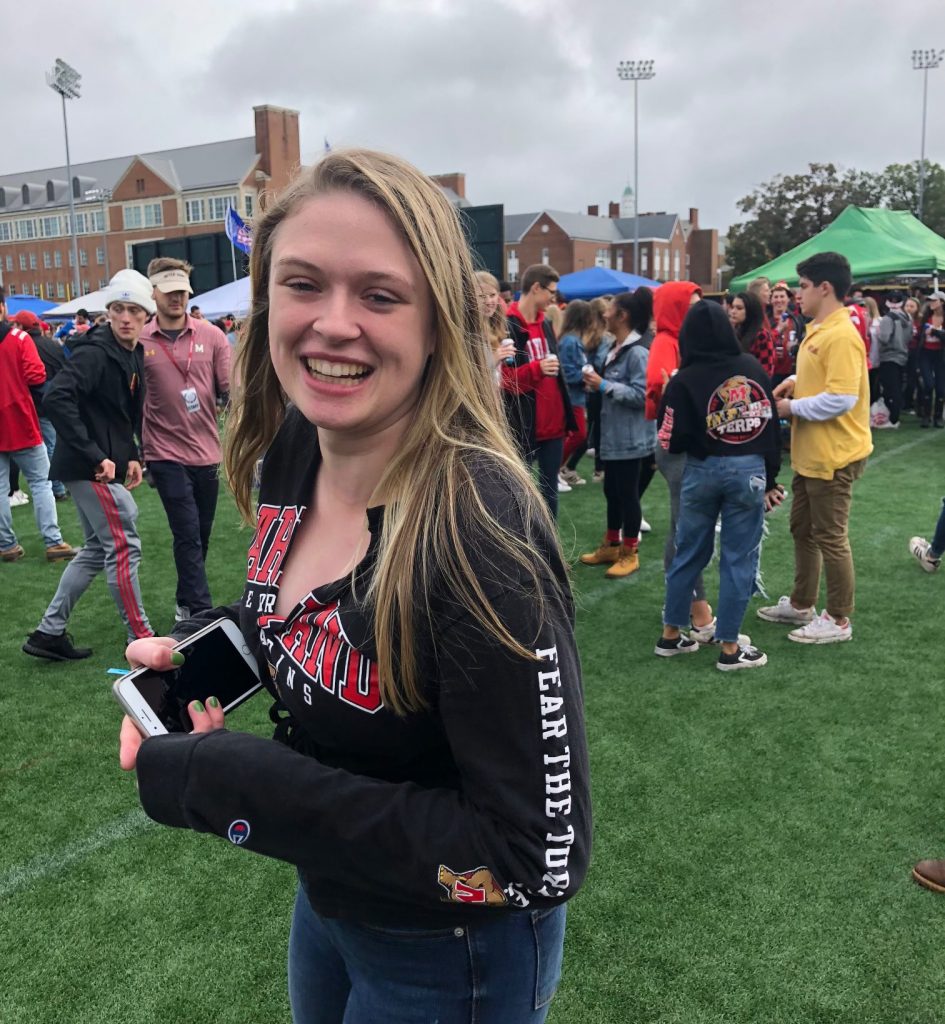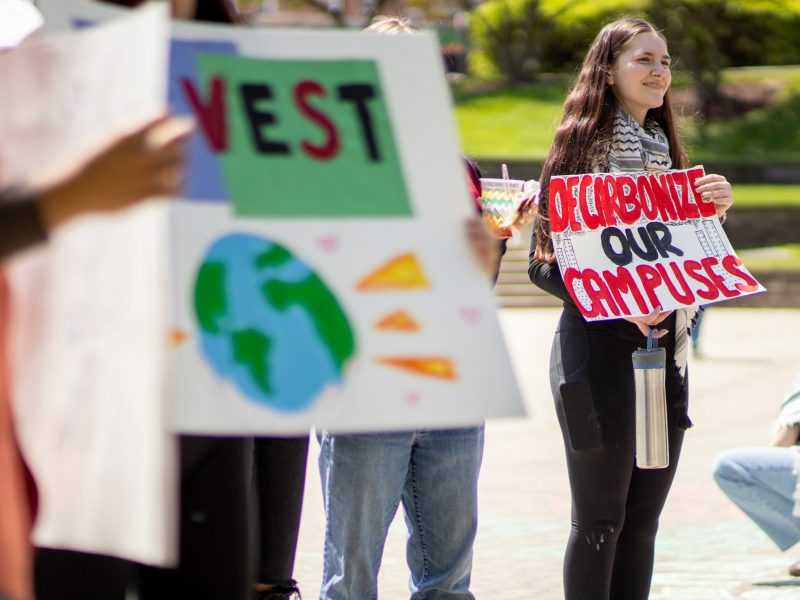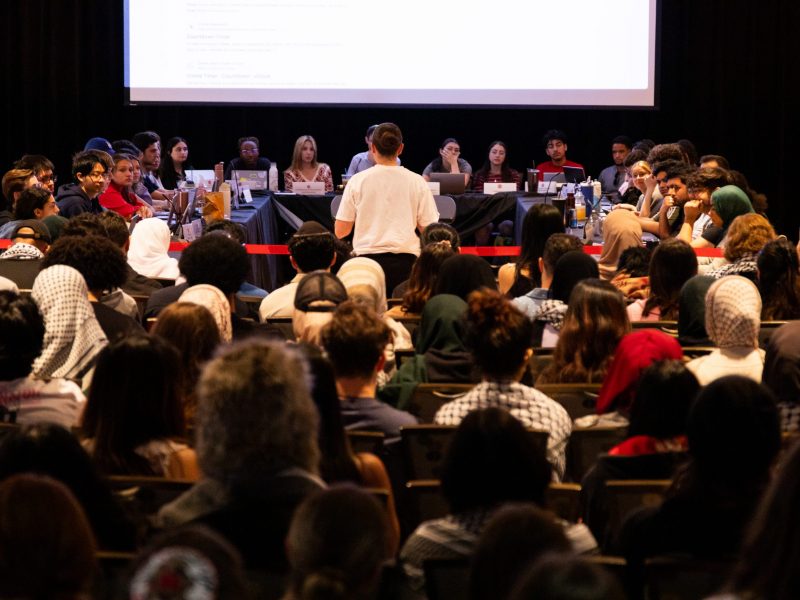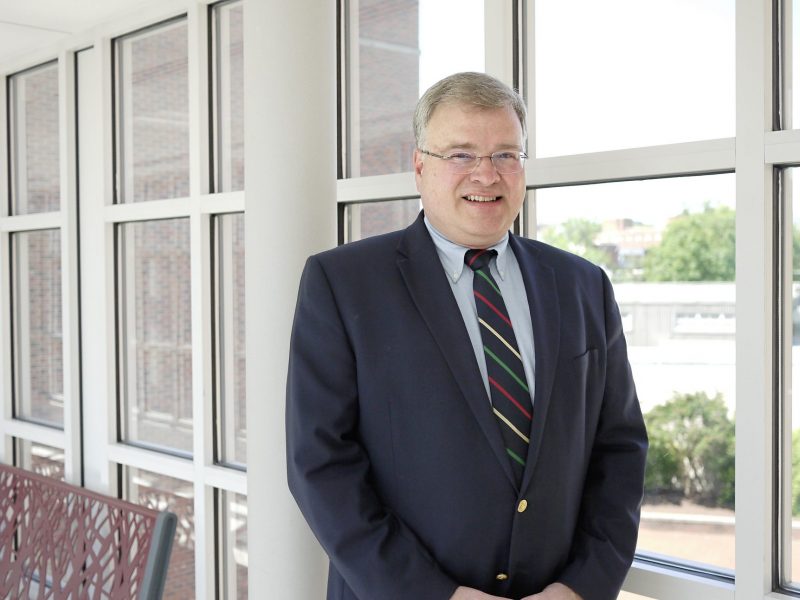On a fall day in 2018, Elton John songs rang out from Katie Bedingfield and Kate Burgess’ shared room in the Kappa Alpha Theta sorority chapter house at the University of Maryland.
Bedingfield loved to listen to music that college students don’t typically listen to — from Fountains of Wayne’s “Stacy’s Mom” to Jimmy Buffett — and this occasion was no different. She had just gone to an Elton John concert with her dad and was determined to play every song from the concert in the order they were played.
“[It] is just one of my favorite memories of living together in a little tiny room in our sorority house,” said Burgess, who graduated last year with a public policy degree.
For Bedingfield’s friends, this enthusiasm represented her personality on the campus and beyond: kind and welcoming to all, passionate about helping others and fun-loving.
Bedingfield, who graduated in May with a degree in public health science, died July 10 after battling a brain tumor for three years. Her brain cancer progressed quickly after graduation, her family said.
Bedingfield was born into a military family that moved around the United States and Germany before settling in Reading, Massachusetts, a town near Boston.
In College Park, Bedingfield became invested in helping the less fortunate in the area, said Becca Delaney, Bedingfield’s former roommate and classmate in CIVICUS, a living-learning program focused on student activism and civic engagement.
She worked with local food banks and the Food Recovery Network, Delaney said, and volunteered at A Wider Circle.
Kelly Bedingfield, Bedingfield’s mother, remembered her daughter’s first evening of college, when she worked with other CIVICUS students to make peanut butter and jelly sandwiches for people experiencing homelessness in College Park.
When Kelly Bedingfield told her friends, they jokingly expressed their disbelief because college freshmen don’t spend their time making sandwiches. But she knew her daughter was telling the truth — she was the type to forgo a night out to help others.
Bedingfield’s passion for service extended back to her younger days, her mother said. In high school, she helped teach religious education classes at her church and was a peer math tutor.
When Bedingfield wasn’t involved in community service, performing arts was her other passion, her mother said. She danced “since she could walk” before stopping when her brain tumor began to affect her mobility. During the summer, Bedingfield loved going to theater camp in Connecticut. She simply enjoyed singing and acting with her friends, Kelly Bedingfield said.
Bedingfield’s academic journey, too, was focused on advocacy for the greater good. Her interest in public health science was sparked in part by her own cancer and her faith that a cure could be found. For her birthday, she would ask for donations to brain tumor research and Massachusetts General Hospital, where she received treatment, her mother said.
Bedingfield was also devoted to abolishing the death penalty, which she focused on in her senior thesis. She wrote much of the paper with her left hand because her brain tumor affected the coordination in her dominant right hand, according to her mother.
“[She was] really, really determined to finish her degree,” Kelly Bedingfield said. “She … just did everything she could do to hang on.”
In Kappa Alpha Theta, which Bedingfield joined during her freshman year, her love for others shined through.
During their sophomore year, Burgess was planning a big philanthropy event for the sorority. Without being asked, Bedingfield provided her with support, advice and help ordering shirts and taking pictures, Burgess said.
“There was never that expectation, but Katie was like, ‘I want to help you. That’s what I’m going to do,'” Burgess said.
Bedingfield was a big supporter of Kappa Alpha Theta’s philanthropy, the National Court Appointed Special Advocate/Guardian ad Litem Association for Children, an organization that provides support and resources to youth who have experienced abuse and neglect.
She would often be the first one to remind her sorority sisters about service events and fundraisers, Burgess said.
Bedingfield made sure to stay true to herself and not give into the pressures that can often come with Greek life, her friends said. She never excluded those who didn’t “act a certain way,” said Hannah Aiello, Bedingfield’s sorority sister.
“She really had that natural ability to make you feel comfortable and not judged,” said Aiello, who graduated in 2020 with a degree in government and politics.
When her sorority sisters felt left out or doubted their place in the organization, Bedingfield was always there to reassure them.
“I often felt like I didn’t belong, and she was always there like, ‘No, you’re fine, you belong here, I belong here, we all belong here,’” said Kennedy Rush, a member of the sorority who graduated in 2020 with a degree in environmental science and policy and government and politics.
That ability to make people feel relaxed extended even to those who Bedingfield was not close to, said Chloe McLaughlin, who went to high school and college with Bedingfield.
“She would greet you the same way as if she’d known you forever,” McLaughlin said.
When Bedingfield took time off school to undergo treatment for her cancer, she was disappointed she couldn’t spend time in College Park with her friends, but she managed to stay in touch.
In February 2019, Bedingfield returned to campus for Kappa Alpha Theta’s sorority bid day. Although she was tired from her treatments, she sat in the house’s kitchen and chatted with everyone who wanted to talk to her, Burgess said.
Even as her cancer progressed and she could not always participate in high-energy activities, she prioritized spending time with those she loved.
She especially enjoyed hanging out with her four siblings, Kelly Bedingfield said. They would spend time in the family’s pool, binge watch TV shows together or simply sit around the dinner table talking.
“Over and over again, that’s really who she wanted to spend all of her time with in the last couple of years,” she said.
On the few occasions when her friends went to Boston to visit Bedingfield during her treatments, she welcomed them with open arms, Burgess said. Instead of going to tailgates like they would in College Park, they would eat long meals, watch hours of Modern Family and laugh over memories.
“Even though the circumstances changed over the years, the way she made us feel never did,” Burgess said.
In the last weeks of her life, Bedingfield’s brain tumor caused short-term memory loss. But she continued speaking optimistically about the future and showed gratitude to everyone around her.
“Until the day she died, with the hospice nurses, it was ‘please’ and ‘thank you,’ and she just never wanted to inconvenience anybody,” her mother said.
Now, as her loved ones remember her, her kindness toward others at every point in her life will be her legacy.
“She really was so good,” Aiello said. “Really, truly to the deepest part of her soul, she was a good person.”
